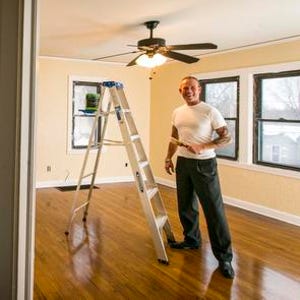Snoqualmie
Pass Real Estate, Snoqualmie Pass Properties, Snoqualmie Pass Homes, Snoqualmie
Pass Lots, http://www.snoqualmiepassliving.com
When the couple, both 26, met with a mortgage specialist in December 2013, they found out Biethan would need to improve his score in order for them to get pre-approved for a mortgage. In fact, neither of them knew their credit scores before meeting with the banker, but they were ready to buy their first home after living in Seattle for about six years.
"We found out, OK your credit score really affects your interest rate," Kapelke says. Biethan worked to improve his score over the past year, and the two revisited homeownership in the fall. They closed on a townhouse in West Seattle last month.
With rents rising into unaffordable territory, housing inventory up and mortgage rates hovering below 4%, 2015 may prove to be the year of homeownership for millions of Millennials. Real estate website Zillow predicts Millennials will overcome Gen X as the largest group of home buyers this year — more than half of 18- to 34-year-olds said they plan to buy a house in the next one to five years, according to a survey by Zillow last summer.
But after putting away enough savings, the biggest hurdle for Millennial buyers may be the learning curve that comes with understanding the process, as well as a host of new financial terms, trade-offs and commitments to consider.
It's a stressful process, especially when you've never done it before, recent first-time Millennial buyers say. Kenny Coleman, 25, bought his first place — a loft-style apartment in Cincinnati — in December. He says the first bank he went to for a mortgage wasn't good at explaining the financing process to a first-timer. "They used all this jargon," he says. "And they're talking about all these different insurances." Coleman, who says the process took him from "complete idiot to pretty well versed" in a matter of weeks, ultimately went to a different bank that was willing to give him a fixed-rate mortgage instead of an adjustable-rate mortgage.
Heading into the popular spring selling season, some real estate companies say they're already seeing interest spike from new buyers. Listings for townhouses and starter homes have seen more traffic in the past month on john greene Realtor's website, says Scott Parker, vice president and sales manager.
"There are Millennials on the sidelines that when we provide the right supply on the market are going to be very curious and interested in buying," he says.
If you're one of them, here's what housing experts and recent Millennial homeowners say first-time buyers absolutely need to know before getting into the housing market:
• First, as Kapelke attests, find out what your credit score is. It's the main factor determining what rates you'll get on a mortgage or whether lenders will work with you in the first place.
• Kapelke and Coleman both say they realized it was the right time to buy when they knew they'd be living in their respective cities for the foreseeable future. "Personally, are you going to be living in that area for at least the next five to seven years?" Kapelke says. "You kind of need to be settled, otherwise you're just going to lose money when you're selling (your house)."
• You don't have to have the traditional 20% down payment to become a homeowner, says Tim Savoy, a real estate agent with Coldwell Banker in Washington, D.C. He says many of his clients aren't aware of programs, like a local one called DC Open Doors, that will cover much, and sometimes all, of a down payment.
And Svenja Gudell, senior director of economic research at Zillow, says more lenders now are willing to work with clients on a conventional loan if you have 10% down or even as low as 5%. FHA (Federal Housing Administration) loans allow you to pay as little as 3.5% down, but are often more expensive than conventional loans backed by Fannie Mae and Freddie Mac, Gudell says.
• Fannie Mae and Freddie Mac announced in December that they would back mortgages with down payments as low as 3%. But Gudell says not many lenders will work with buyers putting that little down.
Plus, be aware of how much more it will cost you when you have a lower down payment. Anything less than 20% will require that you also pay a monthly mortgage insurance. FHA loans will lock you into private mortgage insurance for the duration of the loan. But if you take out a conventional loan with less than 20% down, you can stop paying mortgage insurance once you have 20% equity in your house, Gudell says. FHA loans also often have higher interest rates and require an up-front mortgage insurance payment in addition to the monthly payment.
• Don't become fixated on the listing price of a home, says Parker, calling it one of the biggest pitfalls first-time buyers fall into. Buying a house means you're not only responsible for a monthly mortgage payment but other expenses, such as homeowners insurance and property taxes. Fees associated with closing a sale — such as the origination fee, appraisal fee and courier fee — can also equal another 2%-5% of your loan, Gudell says.
Snoqualmie
Pass Real Estate, Snoqualmie Pass Properties, Snoqualmie Pass Homes, Snoqualmie
Pass Lots, http://www.snoqualmiepassliving.com

No comments:
Post a Comment